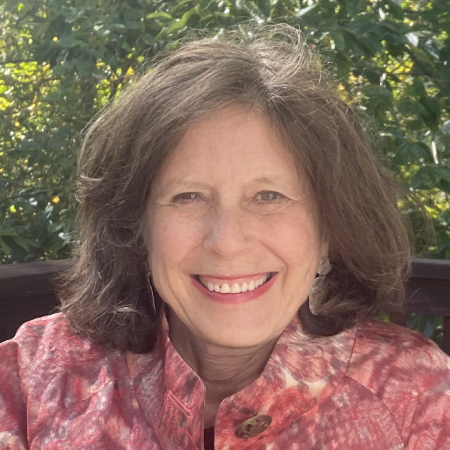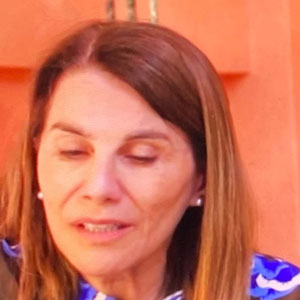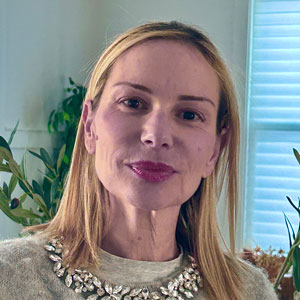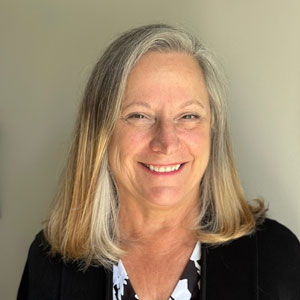Weekend Conference February 21-23, 2025, will be offered Online. Open to any mental health professional or mental health professional-in-training.
You wouldn’t want to miss this opportunity to explore the evolving landscape of female identity through the lens of psychoanalysis! This groundbreaking conference delves into the intricate complexities of womanhood, challenging traditional perspectives and sparking vital conversations.
Renowned experts and the faculty at the International Psychotherapy Institute will guide you through a captivating journey, starting with Freud’s foundational theories and culminating in cutting-edge clinical applications. Witness firsthand how societal forces and unconscious desires shape female experience from the Oedipus complex to reproductive challenges.
The radical transformation of womanhood has progressed in recent decades, impacting not only how women perceive themselves but also how society views them, raising profound questions about female identity. Our conference will explore the intricate landscape of female psychosexual development, exploring Freud’s classical psychoanalytic theories on the Oedipus complex, the shift from clitoral to vaginal focus, and the girl’s desire for the father, and its applications to everyday clinical practice for therapists and analysts who are working with individuals, couples and families.
At the outset, Marguerita Cereijido, PhD, will highlight Freud’s perspective of female sexual evolution to set the stage for Juliet Mitchell’s, FBA comparative viewpoints. Then, we will apply Dr. Mitchell’s concepts of female sexual maturation to real-world examples and a clinical case presentation by Daniela Walder, Psy.D. Discussions will center on the impact of sexism and cultural sexism, in particular, on psychological growth for all genders. Subsequently, Paula Ellman, PhD will illuminate the role of self-agency in female progression and the potential link between unconscious hatred towards women and violence against women. We will compare and contrast various classical theories of female formation and discuss psychodynamic and psychoanalytic techniques applied to explore women’s reproductive choices. Through the lens of IPI’s learning in large and small groups, we will apply these theoretical perspectives to clinical situations and examine therapeutic techniques to address reproductive challenges faced by individuals, couples and families.
Participants to the International Psychotherapy Institute’s weekend conference, “Psychoanalysis, Fratriarchy, and the Division Between the Sexes” will have the opportunity to engage in stimulating conversations either as a full-weekend participant (Feb. 21-23), or all day Saturday (Feb 22), or Saturday morning (Feb 22). This is your chance to connect with leading voices in the field and gain invaluable insights into the complexities of female psychosexual development. Join us at IPI for a transformative learning experience.
Program Date(s):
February 21, 2025 - February 23, 2025Overview
The course will use lecture, large group discussion, small group/GAM group discussion, case presentation and discussion and informal discussion to achieve the course objectives.
General weekend schedule
Friday 8:45 am – 4:15 pm US ET
Saturday 8:45 am – 5:25 pm US ET
Sunday 10:00 am – 2:00 pm US ET
Readings will be provided to all registered participants.
Friday Morning Feb 21, 2025:
Marguerita Cereijido, PhD: Changing Notions of Gender Identification
Juliet Mitchell, FBA: Rethinking Psychoanalysis and Feminism: What is Psychoanalysis?
Learning Objectives:
- Explain Freud’s perspective on female psychosexual development, including the role of the Oedipus complex.
- Compare Freud’s perspective of female sexual identification to that articulated by Juliet Mitchell.
Small Group Session after Friday morning Feb 21:
Learning Objectives:
- Select and discuss clinical vignettes that illustrate Freud’s theory of female sexual identification using the forum of the group affective model.
- Using the group affective model, discuss clinical vignettes illustrating the patient’s use of free association as it relates to themes of development and autonomy.
Clinical Case Presentation (Friday afternoon, Feb 21):
Daniela Walder, Psy.D. (Presenter)
Juliet Mitchell, FBA (Discussant)
Learning Objectives:
- Identify and illustrate two examples of cultural sexism as presented by Dr. Walder.
- Apply Dr. Mitchell’s concepts of female sexual development to the case presented by Dr. Daniela Walder.
Small Group Session after Clinical Case Presentation
Learning Objectives:
- Collaborate within your group to select clinical vignettes from your own practice which illustrate cultural sexism.
- Using the Group Affective Model, discuss how cultural sexism adversely impacts individuals’ psychological development.
Saturday morning, Feb 22: Juliet Mitchell, FBA: Sexuality, Sexual Difference and the Division between the Sexes
Learning Objectives:
- Explain the taboo of female desire for incest, comparing Freud’s view of the girl’s wish for her father to Juliet Mitchell’s perspective.
- Explain Freud’s view that a lady progresses in development towards the wish for a child by transitioning away from the clitoris and towards the vagina.
Small Group Session after Saturday morning session:
Learning Objectives:
- Demonstrate the ways female patients experience themselves within families, the workplace, and society as the “Other” using clinical vignettes as examples.
- Within the context of the small group, apply the conceptualization of female desire for the father according to Freud and Mitchell using clinical or personal examples.
Saturday afternoon: Paula Ellman, PhD: Contemporary Femininity – Where is the self-agency?
Learning Objectives:
- Identify three aspects of self-agency that contribute to a female’s development,
- Evaluate the potential link between unconscious hatred towards women and violence against women
Small Group Session after Saturday afternoon session:
Learning Objectives:
- Describe two clinical vignettes from your practice that illustrate the relationship between personal power and a female’s self-esteem and self-determination
- 2. Cite relevant research or theoretical frameworks that demonstrate the potential link between unconscious hatred and sexual abuse and violence against women
Plenary:
Learning Objectives:
- Describe examples of current challenges women encounter in clinical settings around the world and in varied sociocultural contexts
- Examine varied representations of female sexual development as conceptualized by the learners at the plenary.
Sunday morning, Feb 23: Juliet Mitchell, FBA: Feminism and Psychoanalysis
Learning Objectives:
- Compare and contrast Freud, Jones, and Abraham’s theories of female development, identifying key similarities and differences in their perspectives.
- Evaluate how psychodynamic techniques can be utilized to explore the complexities of reproductive choices (e.g., abortion, motherhood) within a therapeutic setting, considering the influence of feminist ideals on these decisions.
Small Group Session after Sunday morning
Learning Objectives:
- Apply the theoretical perspectives of Freud, Jones, and Abraham to study clinical case examples of female patients in therapy or analysis.
- Provide specific examples of therapeutic techniques to examine the range of reproductive choices that women confront in therapy or analysis.
Closing Dialogue:
Learning Objectives:
- Explain the evolution of female sexual identification from classical to contemporary psychoanalytic theory
- Apply the core concepts learned throughout the weekend (as they pertain to feminism and the division between the sexes) to clinical case material.
Juliet Mitchell, FBA
 Juliet Mitchell FBA is an author, psychoanalyst, socialist feminist and emeritus professor whose work has changed the landscape of both feminist thought and psychoanalytic theory, and remained at the heart of critical thinking for over 50 years. In her most recent book, Fratriarcy: the Sibling Trauma and the Law of the Mother, she juxtaposes Fratriarchy with Patriarchy exemplified by Freud’s notion of a female Oedipus complex.
Juliet Mitchell FBA is an author, psychoanalyst, socialist feminist and emeritus professor whose work has changed the landscape of both feminist thought and psychoanalytic theory, and remained at the heart of critical thinking for over 50 years. In her most recent book, Fratriarcy: the Sibling Trauma and the Law of the Mother, she juxtaposes Fratriarchy with Patriarchy exemplified by Freud’s notion of a female Oedipus complex.
Paula L. Ellman, Ph.D., ABPP
 Paula L. Ellman, Ph.D., ABPP. is a training and supervising analyst, and faculty in the Contemporary Freudian Society, Washington DC and the Washington Baltimore Center for Psychoanalysis. She serves on the IPA Board as North America Representative, and founded and serves as the Chair of the Committee on Women and Psychoanalysis Book Series Editorial Board. She is past Overall Chair of the IPA Committee on Women and Psychoanalysis, and past Chair of the IPA Intercommittee Work Group on Prejudice and Race. Dr. Ellman has written and presented in the areas of unconscious fantasy, women and gender, sadomasochism, enactment and terror. She has authored many books including: Psychoanalytic Exploration of What Women Want Today, co-edited with Margarita Cereijido and Nancy Goodman. London: Routledge Press, 2022, and The Courage to Fight Violence against Women: A Psychoanalytic and Multidisciplinary Approach, co-edited by Paula Ellman, Ph.D. Nancy Goodman, London: Karnac Press. 2017. Dr. Ellman has a private practice in psychotherapy and psychoanalysis in North Bethesda, Maryland.
Paula L. Ellman, Ph.D., ABPP. is a training and supervising analyst, and faculty in the Contemporary Freudian Society, Washington DC and the Washington Baltimore Center for Psychoanalysis. She serves on the IPA Board as North America Representative, and founded and serves as the Chair of the Committee on Women and Psychoanalysis Book Series Editorial Board. She is past Overall Chair of the IPA Committee on Women and Psychoanalysis, and past Chair of the IPA Intercommittee Work Group on Prejudice and Race. Dr. Ellman has written and presented in the areas of unconscious fantasy, women and gender, sadomasochism, enactment and terror. She has authored many books including: Psychoanalytic Exploration of What Women Want Today, co-edited with Margarita Cereijido and Nancy Goodman. London: Routledge Press, 2022, and The Courage to Fight Violence against Women: A Psychoanalytic and Multidisciplinary Approach, co-edited by Paula Ellman, Ph.D. Nancy Goodman, London: Karnac Press. 2017. Dr. Ellman has a private practice in psychotherapy and psychoanalysis in North Bethesda, Maryland.
Margarita Cereijido, PhD
 Margarita Cereijido, PhD, is a Training Analyst at the Washington Baltimore Center for Psychoanalysis. She has written and taught on the areas of gender, culture, and prejudice. Recent publications include: What Do Women Want Today? (with Ellman and Goodman) Routledge 2022, and Changing Notions of the Feminine; Challenging the Psychoanalyst’s Prejudices, Karnac 2018. She is the North America Co-Chair of the Committee of Women and Psychoanalysis (COWAP) at the International Psychoanalytic Association. She is in private practice in Washington, D.C.
Margarita Cereijido, PhD, is a Training Analyst at the Washington Baltimore Center for Psychoanalysis. She has written and taught on the areas of gender, culture, and prejudice. Recent publications include: What Do Women Want Today? (with Ellman and Goodman) Routledge 2022, and Changing Notions of the Feminine; Challenging the Psychoanalyst’s Prejudices, Karnac 2018. She is the North America Co-Chair of the Committee of Women and Psychoanalysis (COWAP) at the International Psychoanalytic Association. She is in private practice in Washington, D.C.
Daniela Walder, Psy.D.
 Daniela Walder, Psy.D. is a clinical psychologist and psychoanalyst-in-training at the International Institute for Psychoanalytic Training, affiliated with the International Psychotherapy Institute. With over two decades of experience in private practice, she works with adolescents and adults, delving into the deeper layers of the mind through psychotherapy and psychoanalysis. Her onsite office is located in McLean, VA, and she is licensed to practice in both Virginia and California. Additionally, Dr. Walder is authorized through PSYPACT to provide telepsychology services across multiple states.
Daniela Walder, Psy.D. is a clinical psychologist and psychoanalyst-in-training at the International Institute for Psychoanalytic Training, affiliated with the International Psychotherapy Institute. With over two decades of experience in private practice, she works with adolescents and adults, delving into the deeper layers of the mind through psychotherapy and psychoanalysis. Her onsite office is located in McLean, VA, and she is licensed to practice in both Virginia and California. Additionally, Dr. Walder is authorized through PSYPACT to provide telepsychology services across multiple states.
IPI Faculty Weekend Co-chairs
Caroline Sehon, MD, FABP
 Caroline Sehon, MD, FABP is director of the International Psychotherapy Institute (IPI) and chair of its overseas online training programs for Jiandanxinli of Beijing, China. At the International Institute for Psychoanalytic Training (IIPT) at IPI, she is a supervising child and adult psychoanalyst and its past chair. She is a clinical professor of psychiatry at Georgetown University, Washington, DC, USA. She has authored articles and book chapters on diverse topics, including child and adult psychoanalysis, teleanalysis, psychotherapy, and couple and family therapy. Her private practice is in Bethesda, MD, USA, where she specializes in adult and child psychoanalysis, and offers couple and family therapy.
Caroline Sehon, MD, FABP is director of the International Psychotherapy Institute (IPI) and chair of its overseas online training programs for Jiandanxinli of Beijing, China. At the International Institute for Psychoanalytic Training (IIPT) at IPI, she is a supervising child and adult psychoanalyst and its past chair. She is a clinical professor of psychiatry at Georgetown University, Washington, DC, USA. She has authored articles and book chapters on diverse topics, including child and adult psychoanalysis, teleanalysis, psychotherapy, and couple and family therapy. Her private practice is in Bethesda, MD, USA, where she specializes in adult and child psychoanalysis, and offers couple and family therapy.
Anne Taylor, LCSW
 Anne Taylor, LCSW has been a practicing therapist for over 25 years. She sees individuals and adults. Anne was founding faculty for IPIindianapolis in 2009 and was chair twice. She completed her psychoanalytic training in 2015 from IIPT and has been national faculty since that time. Anne currently is on the Board of IPI, is the chair if the Candidate Progress Committee for IIPT, leads GAM group for IIPT and is part of the Strategic Planning Committee for IPI.
Anne Taylor, LCSW has been a practicing therapist for over 25 years. She sees individuals and adults. Anne was founding faculty for IPIindianapolis in 2009 and was chair twice. She completed her psychoanalytic training in 2015 from IIPT and has been national faculty since that time. Anne currently is on the Board of IPI, is the chair if the Candidate Progress Committee for IIPT, leads GAM group for IIPT and is part of the Strategic Planning Committee for IPI.
Tuition and Fees
Registration options:
- Full Conference
- $475 up to 21 days in advance; $525 thereafter
- *Full members: $359
- *Associate members: $410
- Full time students: $175
- Saturday All Day (morning and afternoon): $175
- Saturday Morning only: $100
*Login to the website with your member information to access your discounted registration rate
Continuing Education Credit Hours
Full Weekend Conference:
- 14.5 CE credits
Saturday All Day:
- 6 CE credits
Saturday Morning only:
- 2.5 CE credits
Weekend Conference Attendance Policy
Participants can only earn CE credits for each session they attend in its entirety. No partial credit can be given.
Membership Benefits
Become a member of IPI at any level and you will have the option of adding on a Zoom Pro account as one of your member benefits. Associate and Full Members also receive discounted registration fees for most of IPI’s events, a subscription to PEP Web, the online psychoanalytic library, and other benefits depending on membership level.
HIPAA compliant Zoom video accounts are an optional add on for all IPI memberships. IPI has a HIPAA Business Associate Agreement with Zoom, which provides a HIPAA compliant platform for our accounts. HIPPA compliance is strongly recommended for all internet-mediated clinical work and clinical teaching. The “+ Zoom Pro” add-on to the IPI membership gives the user the ability to host online meetings with multiple people at the same time. [Current members can upgrade to the “+ Zoom Pro” account and only pay the difference in price from your current membership level.]
Click for IPI Membership and Zoom Account information
Continuing Education Information
The International Psychotherapy Institute, IPI, is approved by The American Psychological Association to sponsor continuing education for psychologists. IPI maintains responsibility for the program and its content. The International Psychotherapy Institute has been approved by NBCC as an Approved Continuing Education Provider, ACEP No. 6017. Programs that do not qualify for NBCC credit are clearly identified. The International Psychotherapy Institute is responsible for all aspects of the programs. The International Psychotherapy Institute is authorized by the Board of Social Work Examiners in Maryland to sponsor social work continuing education learning activities and maintains full responsibility for this program. This training qualifies for Category I continuing education units. The International Psychotherapy Institute is recognized by the New York State Education Department’s State Board for Social Work as an approved provider of continuing education for licensed social workers #SW-0299.
Participants are responsible for verifying that IPI CE credit is accepted by the licensing boards in their own states.


Should you have any questions about the program or the application process, please feel free to contact:
IPI Administrative Team - contactus@theipi.org

